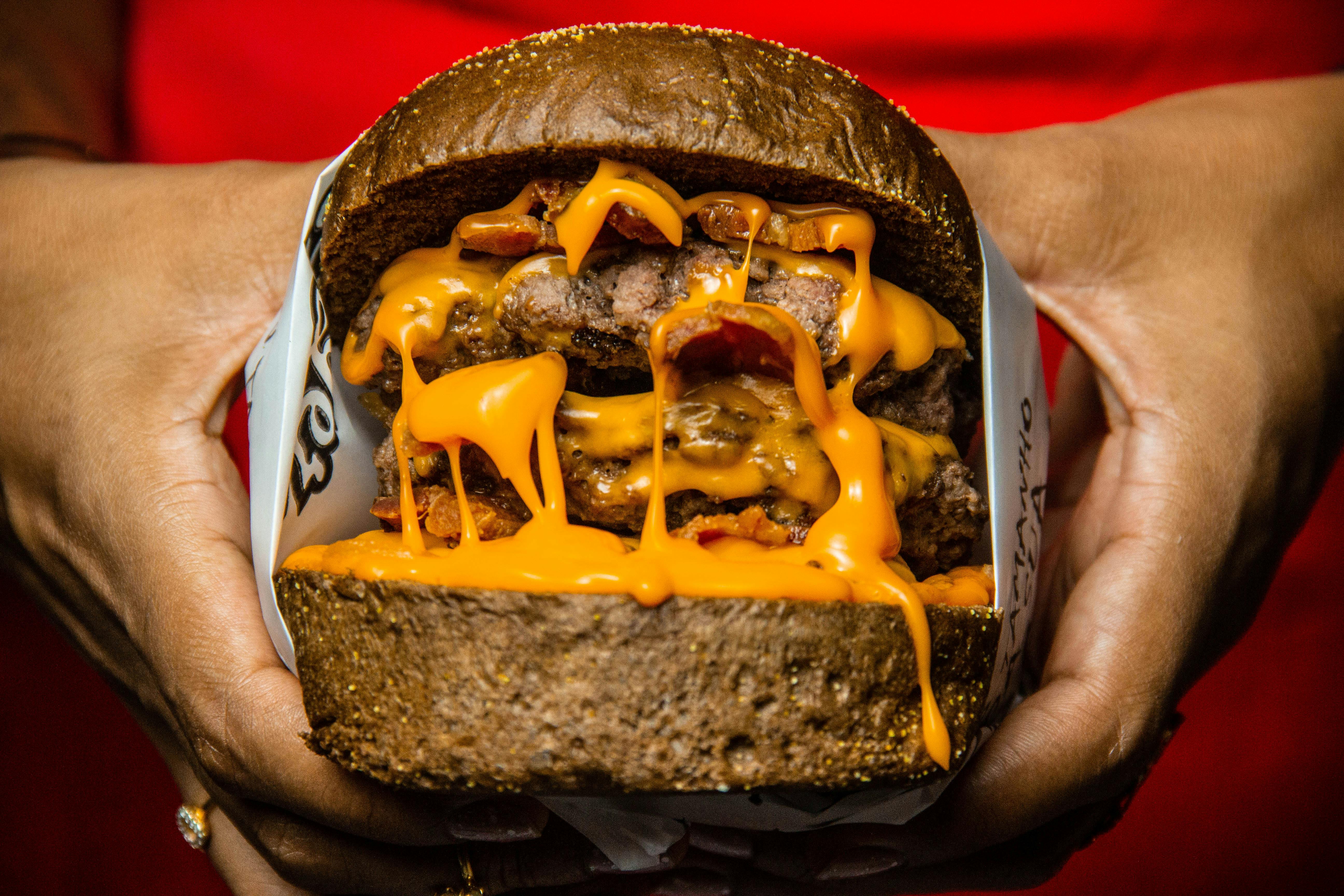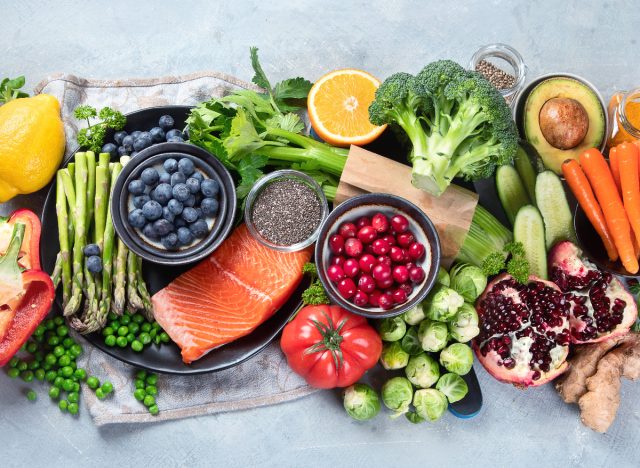
More evidence spotlights the health hazards of ultra-processed foods.
If you're over the age of say, 30, concern about getting dementia someday has probably crossed your mind. Many worry about dementia and Alzheimer's disease because there is no cure. While science can't stop this devastating disease, a new study suggests something well within our ability to reduce our risk: cutting way back on ultra-processed foods. You know, the kind you love: soda, chips, hot dogs, doughnuts, burgers, French fries, white bread, pizza, and funnel cakes.
The study, published recently in JAMA Neurology, recruited more than 10,000 people ages 35 to 74 in 6 Brazilian cities. Brazilians eat a lot of fast food, similar to the United States, and about 20% to 30% of their daily calories come from ultra-processed foods.
Researchers from the University of São Paulo Medical School gave the participants cognitive tests at the beginning and end of the 10-year study and compared results to participants' reported diets. The analysis revealed that men and women who had the highest consumption of ultra-processed food showed a 28% faster rate of global cognitive decline and a 25% faster decline of executive function in the brain compared to people who ate the least junk foods.
Global brain function refers to large-scale activity throughout the brain while executive functions, processed in the pre-frontal cortex, include memory, problem solving, attention and self-control among others.
Read on to learn more about what this study can mean for your brain health, and for more healthy eating tips check out This Supplement May Improve Cognitive Health As You Age.
 |
Shutterstock |
Ultra-Processed Foods and Your Brain
The observational study didn't prove direct cause and effect of eating ultra-processed foods, but the association is likely considering other clinical research. "The results of the study are not surprising because we know that diets rich in ultra-processed foods are linked with higher rates of obesity, type 2 diabetes, and cardiovascular disease, and these are also risk factors associated with higher risk for cognitive decline," says registered dietitian Julie Upton, RD, a member of the Eat This, Not That! Medical Review Board. "Foods that cause weight gain and are bad for your heart tend to be bad for your brain, too."
20 to 30% of ultra-processed foods in a daily total calorie intake of 2,000 works out to be between 400 and 600 calories. That's not hard to swallow when you think about it. Some sugary blended coffee drinks weigh in at 380 calories, and Wendy's Dave's Cheeseburger alone packs in around 600 calories.
It's easy to spot ultra-processed foods if you look at the packaging. Their ingredients lists are typically very long and contain preservatives, coloring, and hard-to-pronounce chemicals. Then there are highly processed foods that are harder to recognize like non-whole grain breads and baked goods, yogurts with added sugars, canned soups, and jarred sauces.
It's also important to note that not every processed food that comes in a can or box is bad for the brain. "Processing foods to some degree is certainly okay. Like milk and canned beans are totally fine," says Tobi Amidor, MS, RD, CDN, a Wall Street Journal best-selling author of The Family Immunity Cookbook. "It's the ultra-processed foods highlighted in the Brazilian study here that you want to eat in smaller amounts."
 |
Shutterstock |
Food for Thought
The good news from this study about bad-for-the-brain foods is that the people studied who ate a healthy whole-food diet with few ultra-processed foods tended to have no decline in brain power. "Rather than target foods to avoid or cut out, the best approach for a truly healthy lifestyle is to focus on what to eat more of or add into your diet," suggests Lisa Moskovitz, RD, the CEO of NY Nutrition Group and author of The Core 3 Healthy Eating Plan. "Prioritize nutrient-dense whole food and that will naturally crowd out other foods that are not health promoting."
Eating with brain health in mind is, well, a no-brainer. It's similar to eating for good heart health: Stick to a healthy plant-forward diet rich in vegetables, fruits, and whole grains, and one that is low in saturated fats and added sugars, advises Upton. Doing that will "keep the blood vessels clear to maximize nutrients and oxygen to the brain to help stave off declines in cognition," she says.
Important Notice: This article was originally published at www.eatthis.com by Jeff Csatari where all credits are due. Fact checked by Samantha Boesch
Disclaimer
The watching, interacting, and participation of any kind with anything on this page does not constitute or initiate a doctor-patient relationship with Veripeudic.com or Life Preserver. None of the statements here have been evaluated by the Food and Drug Administration (FDA). The products of Veripeudic.com or Life Preserver are not intended to diagnose, treat, cure, or prevent any disease. The information being provided should only be considered for education and entertainment purposes only. If you feel that anything you see or hear may be of value to you on this page or on any other medium of any kind associated with, showing, or quoting anything relating to Veripeudic.com or Life Preserver in any way at any time, you are encouraged to and agree to consult with a licensed healthcare professional in your area to discuss it. If you feel that you’re having a healthcare emergency, seek medical attention immediately. The views expressed here are simply either the views and opinions of Veripeudic.com or Life Preserver or others appearing and are protected under the first amendment.
Veripeudic.com or Life Preserver promotes evidence-based natural approaches to health, which means integrating her individual scientific and clinical expertise with the best available external clinical evidence from systematic research. By individual clinical expertise, I refer to the proficiency and judgment that individual clinicians acquire through clinical experience and clinical practice.
Veripeudic.com or Life Preserver does not make any representation or warranties with respect to the accuracy, applicability, fitness, or completeness of any multimedia content provided. Veripeudic.com or Life Preserver does not warrant the performance, effectiveness, or applicability of any sites listed, linked, or referenced to, in, or by any multimedia content.
To be clear, the multimedia content is not intended to be a substitute for professional medical advice, diagnosis, or treatment. Always seek the advice of your physician or other qualified health providers with any questions you may have regarding a medical condition. Never disregard professional medical advice or delay in seeking it because of something you have read or seen in any website, video, image, or media of any kind. Veripeudic.com or Life Preserver hereby disclaims any and all liability to any party for any direct, indirect, implied, punitive, special, incidental, or other consequential damages arising directly or indirectly from any use of the content, which is provided as is, and without warranties.

